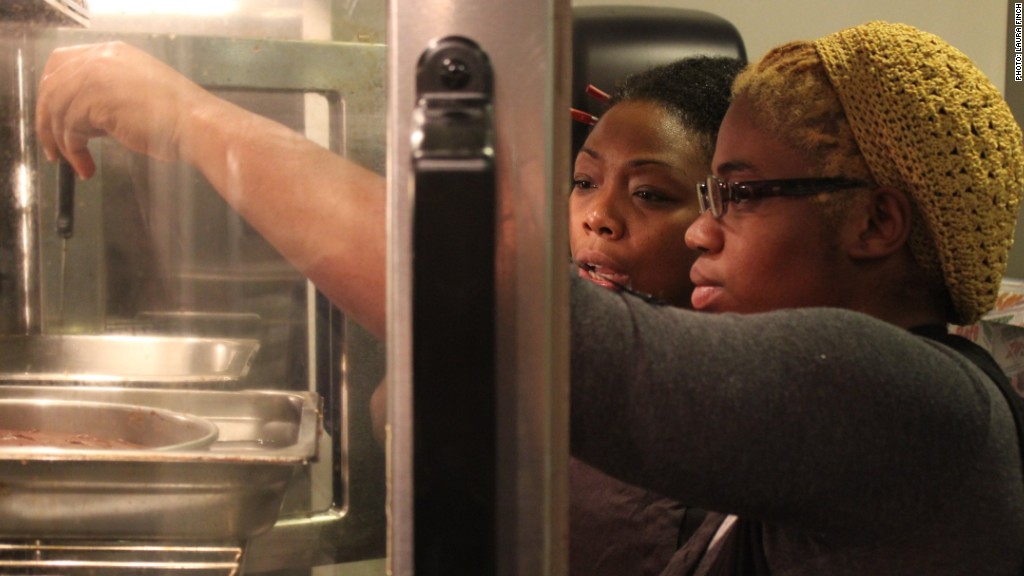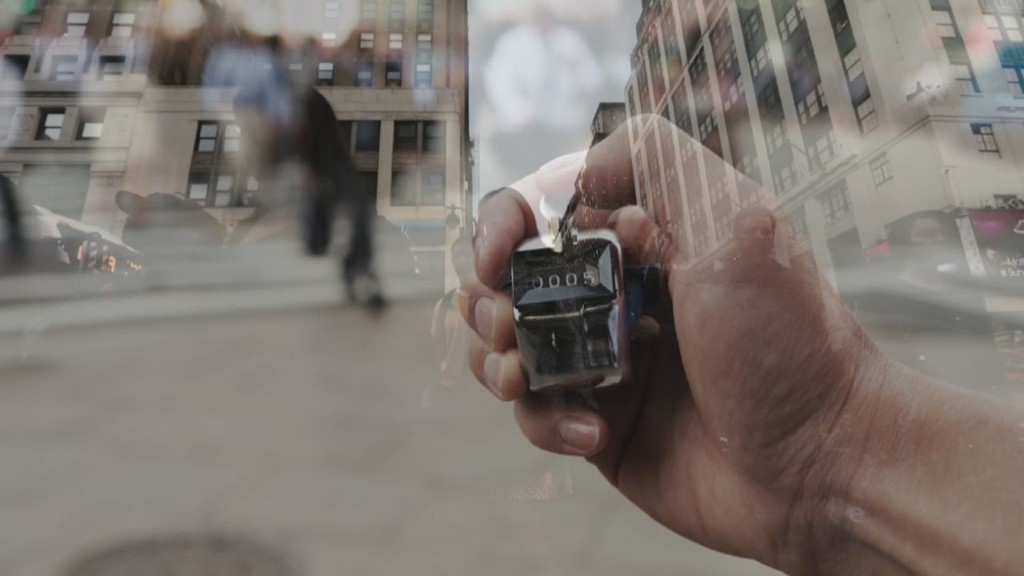
Let's start with the good news: Washington, D.C., has one of the highest concentrations of graduate degrees in the country. It's a place full of smart, wealthy and educated people.
Now for the bad news: It also has the highest poverty rate of any U.S. city, and the youth feel it especially badly. "Disconnected youth" -- defined as those who are unemployed and out of school -- make up 32% of the city's population of 16- to 24-year-olds, or about 10,000 people, according to Raise D.C., a coalition of public, private and nonprofit groups.
"The problem is that the number of kids who need help is just so much greater than the number of kids they have these slots for," said Martha Ross, a researcher with Brookings Institution.
Some D.C. startups and local organizations have stepped forward, filling in the gaps where government stops short.
"Community-based groups are sometimes better positioned to reach young people in tough circumstances," Ross said. "They may have the street cred that an official government agency may lack, they may have developed more responsive programs, and they may be able to be more generally nimble since they're not part of a large public bureaucracy."
D.C. native Dr. Malcolm H. Woodland founded the Young Doctors Project in 2012. It operates out of Ward 8, which has one of the highest poverty rates in the city. It's also the neighborhood where Woodland used to live.
CNNMoney's Most Innovative Cities
The project trains small groups of African-American high school students to provide things like blood pressure screenings and vision exams to underserved communities.
After one year of training, participants work with doctors to conduct free health clinics in their communities. The program started with just six freshmen (they're now juniors). Another small group of incoming freshman began training last month.
"We wanted this to be an opportunity for kids who would not have this opportunity," Woodland said. "We would love for them to go into careers in health care."
For young people who do enroll in college and need financial resources, D.C. startup MPOWER Financing works to connect investors with underserved student borrowers. It provides 10-year, fixed-rate, crowdfunded loans to students who don't have co-signers or established credit histories. The loans go to tuition or living expenses.

Founded only six months ago, MPOWER gave its first loan of $10,000 this month, and has a growing pool of several dozen students in need. The company is currently looking for investors (they call them "champions") to invest $10,000 each, the average value of the loans.
MPOWER is just one of the 200 or so startups that make up 1776, an organization working to solve both city and global issues.
"Our companies are tackling areas that historically have been the domain of government -- areas like education or healthcare or energy," said 1776 co-founder Donna Harris. "They're finding innovative solutions to do what government isn't doing (or doing well) or can't (because of the inherent constraints of being a government entity)."
She said entrepreneurs have more latitude to disrupt the ways things work, and D.C. is the perfect place to do it, with strong networks of lobbyists, advocacy specialists and politicians that startups can tap.
Nonprofit Food For Life benefits from its D.C. connections, with 60% of its $100,000 operating budget coming from donations. Marisa Stubbs founded the organization after culinary school to provide culinary training for disconnected youths ages 18-23.
"Most of the students that come to us haven't been able to connect with a credit accreditation opportunity or gainful employment," said Stubbs.
Kids in her program make gourmet meals for customers as part of a paid nine-week training program. "There's a languishing that happens when people aren't able to connect to their purpose," she said.
Quiz: What innovative city is right for you?
Stubbs started in 2011 with $400. Today, she aims to serve 30 kids a year. At the end of the program, students leave with both hard kitchen skills and softer skills like dependability and stress management.
Antonio Willis, who joined Food for Life to "stay out of the streets," is a testament to the program's mission. He recently graduated and said getting his completion certificate was like graduating from high school.
He's now a cook at Shake Shack and is known for his chopping precision.
"I know how to cut the vegetables the right way thanks to Ms. Marisa teaching me my knife skills," he said. He credits Stubbs for getting him in the door, and hopes to open his own restaurant one day.
"I'm in the process of chasing my dream," he said. "I know you gotta start small sometimes."
What's innovative about your city? Let us know by posting your photo and description to #CNNCities on Instagram.



